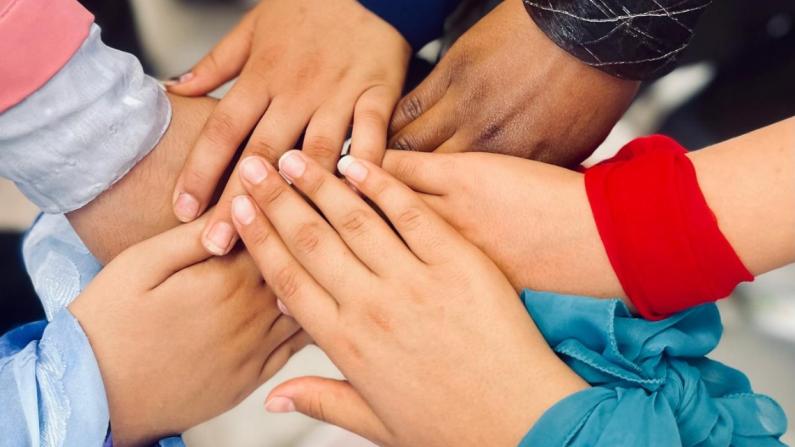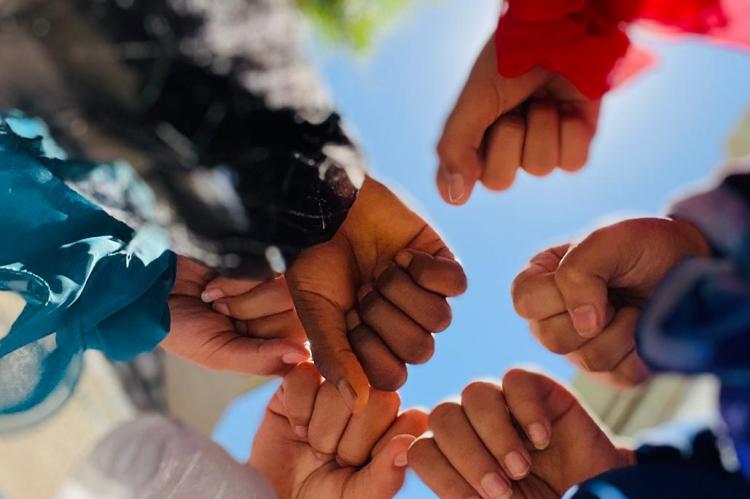
Across continents and centuries, in snow-covered forests, scorched deserts, and crowded cities, the stories echo the same. Genocide wears many faces. It speaks many languages. It happens in places that look nothing alike. Whether in the lush valleys of Bosnia, rainy Rwanda, developed Germany, rice fields of Cambodia, mountains of Armenia, in the highlands of the Caucasus or now (allegedly) the dense cities of Gaza... Being known, forgotten, documented, legally proceeded or not - genocide leaves behind the same pain. No matter how different the land or the culture, these atrocities always speak the same truth: that some lives are seen as less worthy, some histories are meant to be silenced, and some griefs are expected to be forgotten.
And yet, those who survive genocide carry more than pain. They carry memory, and with it, they carry resistance. Whether in Sarajevo, Circassia, or Gaza, the struggle is the same. Mothers mourn. Survivors speak. And generations rise to say: we are still here.
Does the world know?
In the 19th century, the Circassians were violently expelled from their homeland in the North Caucasus by the Russian Empire; a genocide that killed nearly 1.5 million people and scattered the remaining population across the Ottoman Empire. Those who survived built new lives in exile, in places like Jordan and Türkiye, but never forgot what had happened to them. Today, their descendants continue to preserve their language, identity, and stories. Every year, on May 21st, Circassians across the world mark the Day of Remembrance; which is a solemn day of black clothing, peaceful stands, and cultural rituals in music, dance, and storytelling. It is not just a commemoration – it is a defiant refusal to let the past be erased.
A century later, in 1995, the world watched in silence as over 8,000 Bosnian Muslim men and boys were massacred by Serbian-Bosnian forces in Srebrenica, in what would become the worst genocide in Europe since World War II. In the aftermath of that atrocity, a symbolic initiative called “My Mother’s Scarf” was born; an evocative memorial that honors the mothers, sisters, and daughters who were killed, raped, or left to mourn. Each of their scarves represent a life lost or forever changed. These soft fabrics, fluttering in the wind, are not just symbols of sorrow. They are bold statements of strength and survival. Whether it is the Circassians’ cultural rituals or the Bosnian mothers’ scarves, both are acts of remembrance that resist forgetting. They tell the world that memory is a form of justice.
Frieden spenden
Vielen Dank für Ihre Unterstützung!
Does the world care?
And today, the echoes of those past genocides grow louder in the streets of Gaza. Besieged civilians – especially women and children – are enduring mass killing, starvation, the systematic destruction of homes and lives, while hearing plans for deportation being discussed openly. Families continue to speak their truth amid the rubble, insisting that the world sees, listens, and acts.
Across all these places, one thread holds – remembrance. Survivors of genocide are united not by geography, but by a common burden: the struggle to hold onto identity, the need to hold someone accountable and to seek justice, to pass down memory, and to reclaim dignity in a world that too often turns away.
The Mother's Scarf Initiative honors the mothers, sisters, and daughters who were killed, raped, or left to mourn.
As we reflect on these painful legacies, we are called to more than mourning. We are called to action. Genocide is not just a crime against people; it is a crime against our shared humanity. We must resist the normalization of dehumanization, recognize the warning signs, and demand justice for victims, in the past and in the present. Let us amplify the voices of survivors, preserve the memories of the dead, and confront silence with truth everywhere.
Let us not wait for more graves to be dug before we act. Let us stand with those who carry this inherited pain with a shared purpose. Let the scarves of Bosnia, the songs of Circassia, and the cries of Gaza, rise together in a global chorus; not of despair, but of determination.
As the Srebrenica Genocide Remembrance Day approaches on July 11, we call you: wherever you are, whoever you are, not just to remember, but also to act. We call you to join us in wearing a scarf. In taking a picture and in sharing it. Let’s come together to speak for the mothers who are no longer able to speak, Let’s carry the memory of the lost and empower the one who are still alive, and let’s stand in the face of genocide, anywhere and everywhere.
